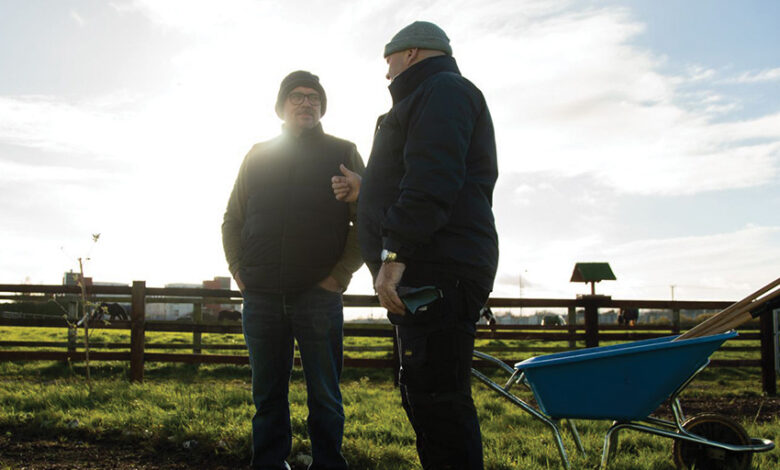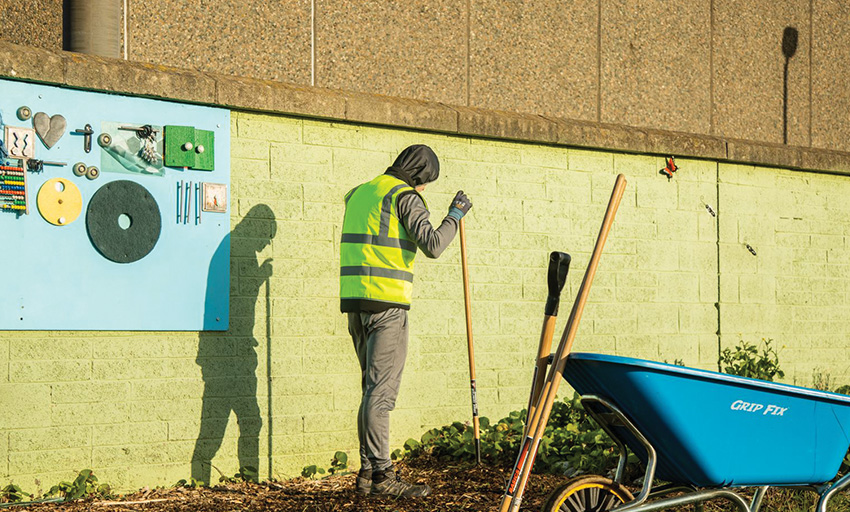Unlocking the potential of community service in Ireland

Probation Service Director of Operations, Fíona Ní Chinnéide outlines ambitious plans to increase the use and effectiveness of community service to reduce reoffending.

Community service is a community-based sanction imposed by the judge as a direct alternative to prison. People subject to community service are required by the courts to perform between 40 and 240 hours of unpaid work for the benefit of the local community. The scheme has been operational in Ireland for more than 40 years, since the enactment of the Criminal Justice (Community Service) Act 1983 and it is managed nationwide by the Probation Service.
There is broad national and international policy consensus that community sanctions, such as community service, are often more effective than custodial sentences in reducing reoffending. In Ireland, 75 per cent people who complete community service do not re-offend within one year. However, recent statistics from the Probation Service indicate a concerning 42 per cent reduction in the use of community service in Ireland over the past five years.
Fíona Ní Chinnéide, Director of Operations (Prisoners and Rehabilitation) in the Probation Service has strategic responsibility for the management of community service in Ireland. Appointed to the Service in 2022, she is the former Executive Director of the Irish Penal Reform Trust and has spent much of her career advocating for changes to penal policy which are focused on effective non-custodial responses to crime.
Ní Chinnéide firmly believes in the value of community service in supporting public safety and is determined to address its underutilisation as a sanction in Ireland.
“Evidence tells us that community sanctions are a more effective response to less serious offending. Community service ensures that people who have offended still maintain their connections with the community, while being held accountable for the harm they have caused through crime. There is also a highly beneficial ‘community payback’ element to community service which offers individuals who have committed offences the opportunity to repair damage to the wider community by undertaking unpaid work.”
In discussing the marked reduction in the use of community service in recent years, Ní Chinnéide acknowledges that “this is a trend witnessed internationally”. “It has been exacerbated by the Covid-19 pandemic which saw widespread disruption to community service sites due to health and safety restrictions,” she says. “However, it is also due to a lack of awareness and public confidence in the efficacy of community sanctions in making communities safer through reduced reoffending. This is something we are eager to see change.”
In 2021, the Probation service conducted a comprehensive Evidence Review of Community Service which examined community service policy, models of practice, research, and innovation in Ireland and internationally. This was subsequently followed in 2022 by an operational review which examined how the existing community service scheme is currently managed nationwide.
In addressing its key findings, Ní Chinnéide emphasises that while the principal finding of the operational review was that the community service is operating as intended, it highlighted challenges in how the scheme is organised and the extent to which it is understood by key stakeholders, which is diminishing its overall impact.
“Looking to the future, our strategy will focus on embedding and advancing the principles of desistence, restorative justice, and social justice across community service policy, practices, and structural innovations. This approach directly supports recommendations included within the Review of Policy Options for Prison and Penal Reform 2022-2024, which was published by the Department of Justice in 2022 and complements our existing values of practice within the Service. We are confident it will ensure the best possible outcomes for our clients and wider communities.”
The operational review also identified the need to address problems specific to rural areas through a partnership approach and to make greater use of individual community service placements to better meet the diverse needs of people, for example gender, disability, or other protected characteristics. It also highlighted the need to more effectively engage with key stakeholders, such as the judiciary and legal representatives, and build greater public awareness of the benefits of community service.
Part of this will involve promoting the many positive experiences of host organisations and people who have participated in community service and who have made lasting changes to their lives for the betterment of themselves and the wider community.

One such example is Tom who, last year was sentenced to 240 hours of community service in lieu of five months in prison and he completed his hours at Cherry Orchard Equine Centre in County Dublin. Tom had been out of work for several years before his conviction but describes his time in Cherry Orchard as “a gateway back into the workforce”. Having to report for work at the centre and turn up regularly, and spend all day on the job, got him back into the habit of working: “I loved my work, but I could never see myself getting back into employment… doing my community service hours changed that.”
Tom explains that completing his community service gave him a very strong sense of giving back to the community for the harm he had done: “I felt that something good came out of my mess that I was able to give something back to society and it got me out of a deep depression that I was heading in for.”
Tom’s experience demonstrates the many positive outcomes, both personal and societal, that can be achieved through community service and the Probation Service is seeking to ensure Tom’s experience is replicated for all community service participants across all counties.
In early 2024, the Probation Service will publish its three-year implementation plan which will chart the new directions for community service into the future. The plan addresses five critical work streams identified within the operational review which include: communications and partnerships, organisational structure and governance, business development (including sites and facilities), data and evaluation, and process.
Ní Chinnéide, who will oversee the implementation of the plan, has a clear vision for the future of community service “as a robust sanction, which is used appropriately and consistently across all courts nationally, both rural and urban, and which supports a demonstrable reduction in offending, while promoting community payback and community reintegration”.
Partnership with communities across Ireland is essential to the realisation of this vision and the Probation Service is keen to connect with communities and organisations nationwide to discuss opportunities for future collaboration.
To speak to someone about how community service can benefit your community or organisation, please contact:
T: 01 817 3600
E: psinfo@probation.ie
W: www.probation.ie






